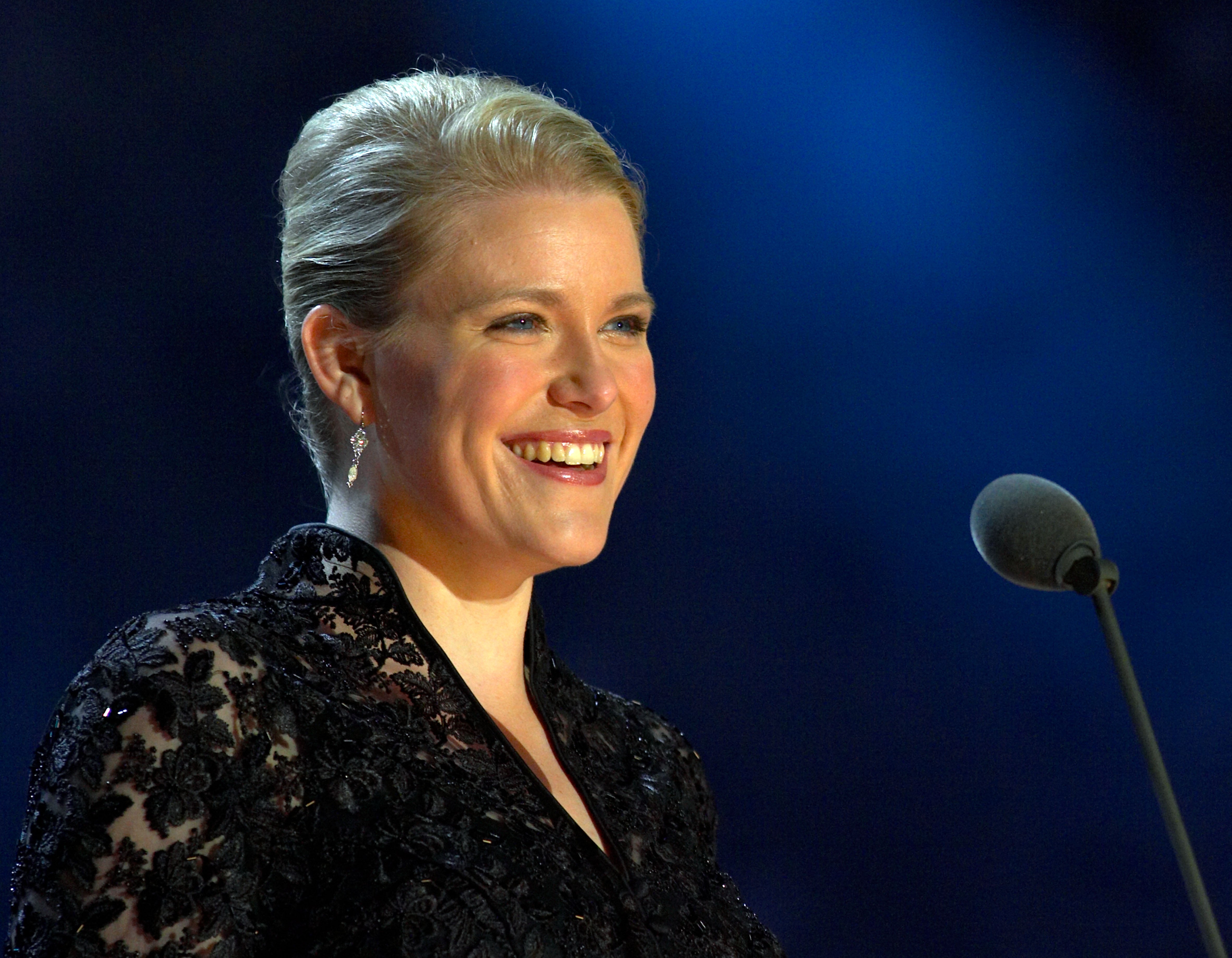Erin Wall: Dazzling soprano who illuminated works by Mozart and Strauss
With her full-bodied yet agile voice, the opera singer was a frequent partner of prominent conductors

Your support helps us to tell the story
From reproductive rights to climate change to Big Tech, The Independent is on the ground when the story is developing. Whether it's investigating the financials of Elon Musk's pro-Trump PAC or producing our latest documentary, 'The A Word', which shines a light on the American women fighting for reproductive rights, we know how important it is to parse out the facts from the messaging.
At such a critical moment in US history, we need reporters on the ground. Your donation allows us to keep sending journalists to speak to both sides of the story.
The Independent is trusted by Americans across the entire political spectrum. And unlike many other quality news outlets, we choose not to lock Americans out of our reporting and analysis with paywalls. We believe quality journalism should be available to everyone, paid for by those who can afford it.
Your support makes all the difference.Erin Wall’s silvery yet warm soprano voice infused works by Mozart, Strauss, Britten and Mahler with luminous elegance.
She died on 8 October at a hospital in Mississauga, Ontario. She was 44. The cause was metastatic breast cancer, Lyric Opera of Chicago said.
Lyric Opera was an artistic home base for Wall, who received her professional start as a member of the company’s prestigious young artist programme, now known as the Patrick G and Shirley W Ryan Opera Centre. Chicago was the site of the dramatic season-opening performance that jolted her nascent career in 2004, when she jumped in with just a few hours’ notice to replace an ill colleague as Donna Anna in Mozart’s Don Giovanni.
John von Rhein of The Chicago Tribune wrote in his review that “in classic showbiz style, she came, she sang and she conquered”. He praised her voice’s “wide compass, gleaming high extension and ability to float a ravishing, seamless line”.
Lyric Opera’s music director, Andrew Davis, the conductor of that Don Giovanni performance and a frequent collaborator with Wall, recalled their performance of Elgar’s oratorio The Kingdom in London in 2014.
“There’s a marvellous soprano aria in that, ‘The sun goeth down’,” Davis said. “And I’ve never heard anyone sing it more beautifully, with such ease and such poignancy. I think of her singing and I get goosebumps.”
Erin Marie Wall was born on 4 November 1975, in Calgary, Alberta, to two American musicians, Michael Wall and Suzanne (Hill) Wall, and grew up in Vancouver. She started in music as a pianist but she was concentrating on singing by the time she attended Western Washington University in Bellingham. She later transferred to Rice University in Houston.
From Rice, she entered Lyric Opera’s young artist programme in 2001. She swiftly established herself as a rising talent: a lyric soprano with a full-bodied yet agile voice and dazzling facility in her top register. It was an instrument ideal for youthful roles like Marguerite in Gounod’s Faust, which she sang in Chicago in 2003, as well as Mozart’s Donna Anna, Pamina (in The Magic Flute) and Konstanze (in The Abduction From the Seraglio).
“The voice definitely evolved,” Michael Benchetrit, Wall’s manager, said. “The middle and lower parts became richer with time.”
This evolution came as she increasingly took on Strauss roles that benefited from more tonal opulence, like Arabella, Chrysothemis (in Elektra) and Daphne. When she starred in Daphne at the Santa Fe Opera in 2007, Benchetrit said, the effect was overwhelming.
“I couldn’t speak to her at the end of the show,” he said. “I had to write her a fan letter. It’s the only time I did that with a client.”
Wall made her New York Metropolitan Opera debut in 2009, as Donna Anna. She returned as Helena in Britten’s A Midsummer Night’s Dream in 2013 and Arabella in 2014. Though acclaimed in staged opera, she concentrated more of her time on concert work, in pieces like Strauss’s Four Last Songs, Britten’s War Requiem, Beethoven’s Ninth Symphony and, especially, Mahler’s mighty choral Eighth Symphony, in which she was captured on several recordings.
She was a frequent partner of prominent conductors, including Donald Runnicles, Christoph Eschenbach, Michael Tilson Thomas, Andris Nelsons and, perhaps most notably, Davis. Earlier this year, he and Wall released a recording of Massenet’s Thaïs, an opera they also performed together in concert at the Edinburgh Festival in 2011.
“That Thaïs was a real step, as she portrayed this extraordinary character who goes from being a courtesan to a nun,” Davis said. “To show the psychological, emotional progress of the character in two and a half hours, in a concert setting, truly took my breath away.”
Found to have cancer in late 2017, Wall was in treatment for much of 2018 but she continued to perform amid surgeries, chemotherapy and radiation. She maintained her appearances until earlier this year, when her cancer returned and the coronavirus pandemic caused performances to be cancelled worldwide.
She discussed her condition candidly in blog posts and on social media; in her Twitter biography, she wrote: “Please don’t use the word ‘battle’ to refer to my life or illness.”
She is survived by her parents; her husband, Roberto Mauro, the director of artistic planning at the Canadian Opera Company in Toronto; their children, Michael and Julia; and her sister, Shannon.
“What resonated between her and the audience was the honesty and directness of her artistry,” Alexander Neef, the director of the Canadian Opera Company and the Paris Opera, said in an interview. “In parts like Arabella and Chrysothemis, she was just very vulnerable. She really carried the emotion of the character.”
Erin Wall, opera singer, born 4 November 1975, died 8 October 2020
© The New York Times

